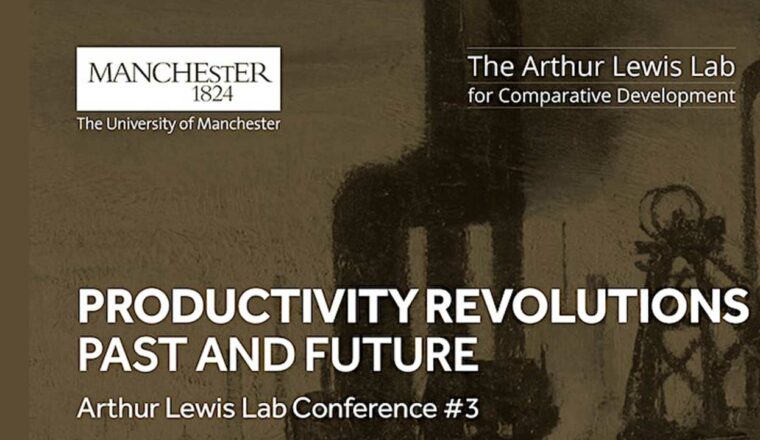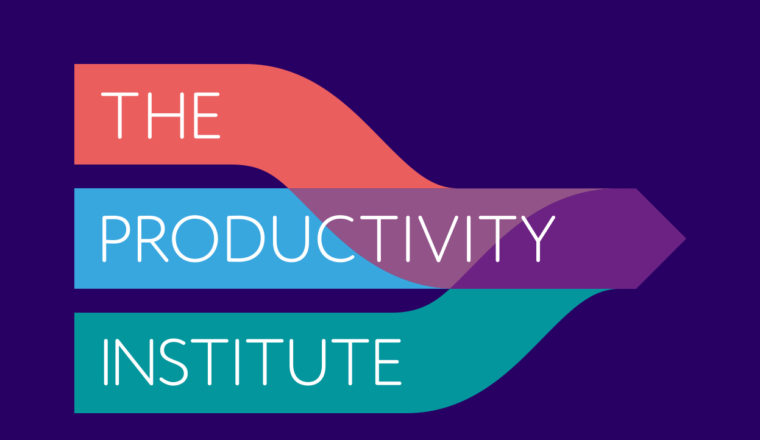How businesses respond to crises and uncertainty
The Covid-19 pandemic, Brexit and the war in Ukraine have all led to significant increases in uncertainty across our economy. What are the knock-on effects of geopolitical upheaval and large-scale health crises on productivity? How should the UK government address the issues that these crises create?
To help answer these questions, The Productivity Institute’s Managing Director Bart van Ark spoke to Rain Newton-Smith, chief economist of the Confederation of British Industry.
What impacts do crises, like the current geopolitical situation and the Covid pandemic, have on productivity?
First and foremost, there are humanitarian consequences. The Confederation of British Industry has been coordinating with businesses and with the Ukrainian Embassy on some very practical measures in terms of getting food supplies to people who need them in Ukraine, as well as thinking about how we can implement sanctions as effectively as possible.
In terms of economics, businesses have been turning to what is in front of them. How does it affect the UK economy? How does it affect their own operations? Businesses themselves are dealing with higher energy costs. If you are a small business in an energy-intensive sector, that is a challenge for you. For example, production of sustainable packaging to ceramic bricks to build houses can take a lot of energy, so you will be facing higher energy costs. There is certainly a role for policy in aiding access to finance for those SMEs to help them in the transition.
Across the G7 countries, the UK has had one of the lowest rates of business investment as a share of GDP for the last three decades. Some of the uncertainty we have seen in recent times is undoubtedly not helping, but there are policy aspects that are in our control. The super-deduction, for instance, which looks at capital incentives to get businesses investing, has helped to support investment this year. Yet it is only available for another year, whereas businesses are currently looking to make investment decisions for the next ten years. They need to know today what sort of incentive we will have in 2023. Businesses want to have that certainty.
Furthermore, businesses are looking to accelerate our move to a net zero economy. We need to be thinking about energy efficiency in our homes and in our businesses. We need the government to set out more of the policy certainty about retrofitting our homes or about the development of hydrogen as a solution for transport or home heating.
Businesses would like to see government making the big decisions that help to crowd in some of the private sector investment we want to see. As an example, it takes eight years to approve offshore wind farms in the UK, but just four years in other countries. Setting out a roadmap for capital incentives and getting on with it now would make a real difference.
Nevertheless, crises can still provide opportunities for productivity. At the Confederation of British Industry, we worked with the London School of Economics surveying businesses about digital adoption during the Covid-19 pandemic. What we found is that 60% of businesses in the first lockdown adopted a new digital technology or a management practice; we re-ran that and found that digital adoption has continued.
Even a crisis can be a window to progress and innovation. It is hard to know exactly what innovation will come out of this latest crisis, but creating that ecosystem where it is easy for businesses to come up with new ideas and adopt digital technologies leads to a more resilient economy.
What would you like to see to try and address the uncertainty and, crucially, the issue of inequality between firms, between workers and between regions?
We need to have a full-scale assessment that looks at the state of the economy and what we can do. We need leading thinkers to evaluate what we can do to drive growth and productivity now. There is so much we can do, even in the delivery of infrastructure, that could really make a difference to growth now.
Relatedly, we should be thinking about making higher living standards and addressing inequality central to that growth and productivity. At the heart of that, in my opinion, should be a skills revolution. While investment in capital and in innovation is hugely important, we know in the UK we have a huge deficit in how much we invest in people and we must allocate more resources towards a proper skills revolution.
This will require thinking about the skills we need for the future; how do you bring together the skills to retrofit homes and install low carbon heat sources such as an air source heat pump? We need to help electricians, architects, designers, local planners and builders to understand how to do that. We need people that know how to measure their Scope 1 and Scope 2 emissions or know about the adoption of digital technologies.
That is my hope for the future – that we really have a proper skills revolution in this country. Crucially, that has got to happen from businesses working with government and with the best academics on how you to implement that properly.
This blog has been adapted from the Productivity Puzzles podcast episode 14, ‘Staying productive in uncertain times’.



